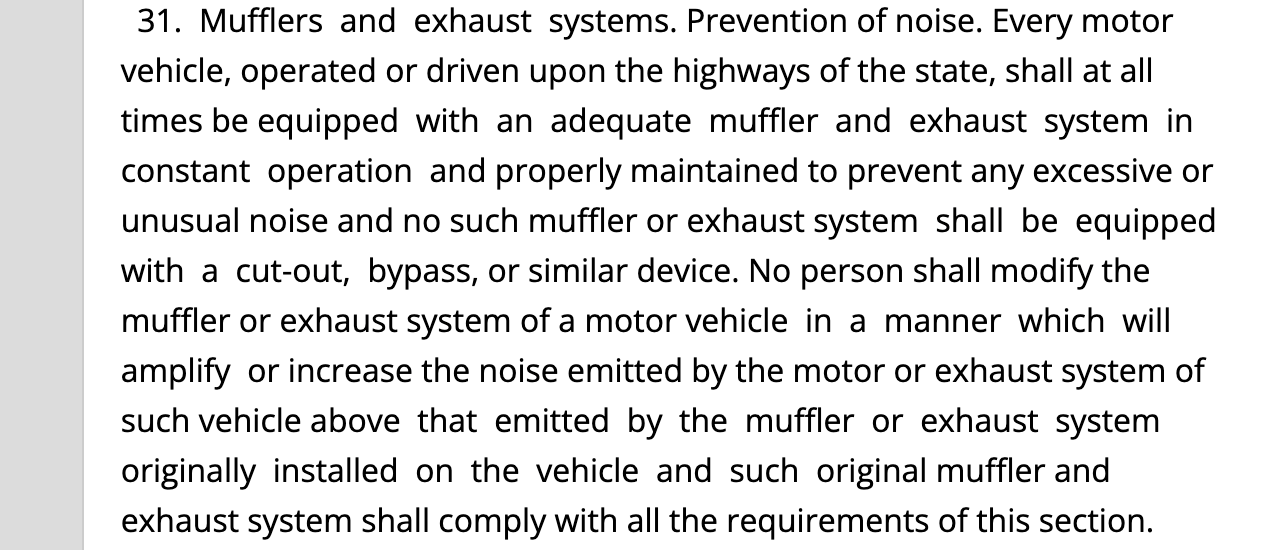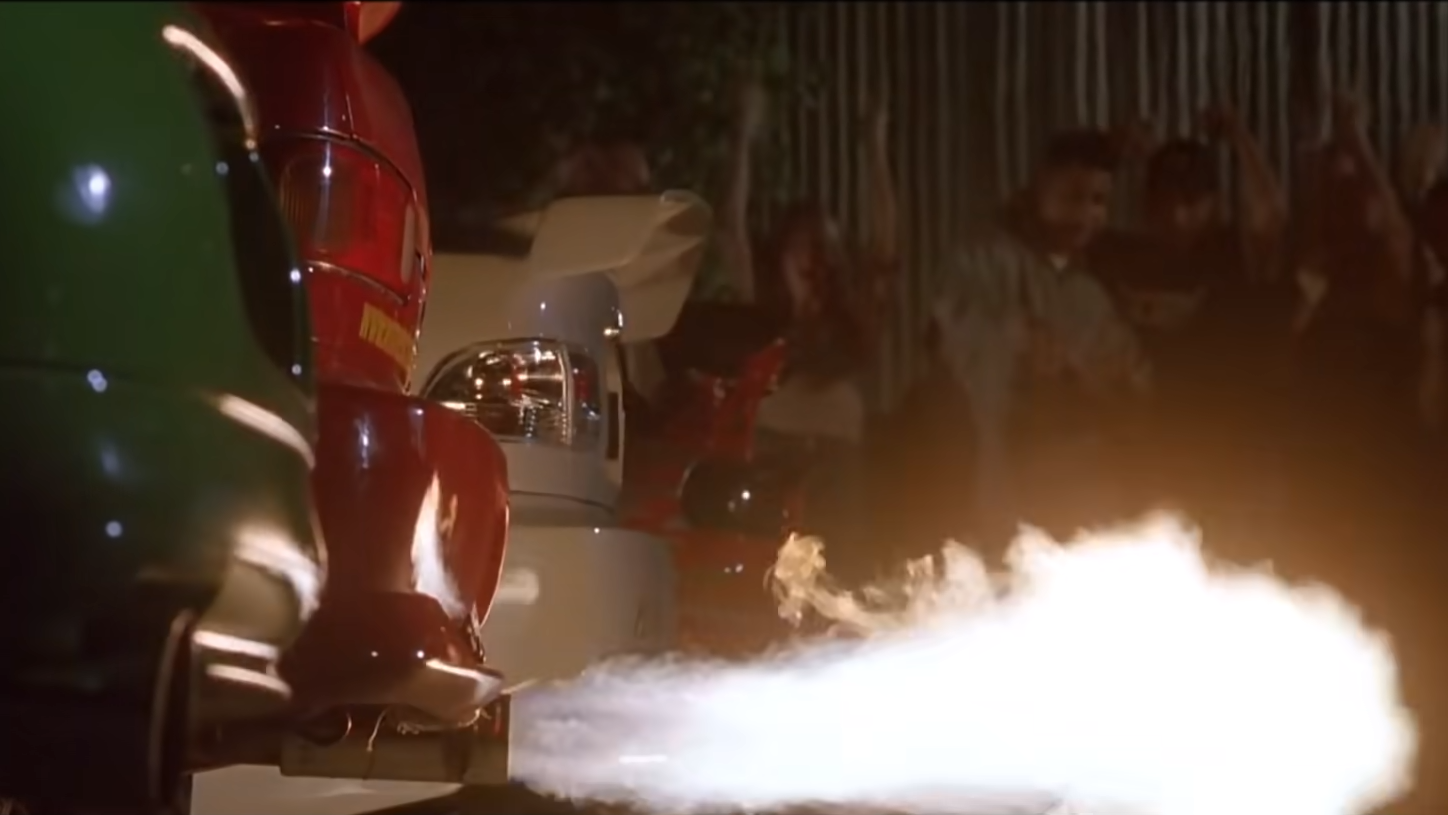New York's Loud Exhaust Ban Is A Misguided, Poorly Written Law
The SLEEP bill gets a D for effort, and an F for execution
Dear Governor Hochul and Senator Gounardes: I get it. No one likes to hear a straight-piped G35 (it's always the Vee Cue Boys) banging off the rev limiter at three in the morning. No one wants to be subjected to the grating, trumpet-like echo of those three and a half liters, bouncing its way between every high-rise in the borough. There are just two problems with your response: First, it's poorly written. Second, do you really have nothing better to do?
To start, what is the SLEEP bill? It's the schlocky backronym name for NY Senate bill S784B, an amendment to the state's laws regarding vehicle equipment — specifically, laws regarding exhausts. The existing law already bans any exhaust with "a cut-out, bypass, or similar device", or anything that "will amplify or increase the noise emitted by the motor or exhaust system of such vehicle above that emitted by the muffler or exhaust system originally installed on the vehicle." God, writing this kind of legalese sounds like soul-crushing work.

It's worth mentioning that this section never actually exempts cars equipped with that functionality from the factory. A broad reading of the law could make your factory-fresh Camaro, with its internal exhaust bypasses in sport mode, totally illegal.
The SLEEP bill's update adds a few more infractions. It's now illegal to "sell, offer for sale or install" any cut-outs, bypasses, similar devices, or exhaust systems that increase the volume of a car in any way. Amusingly, the update also removes some infractions: It now seems to actually be legal to run a louder aftermarket exhaust on a motorcycle, at least under a strict reading of the law, provided you don't install it yourself.

The text of that screenshot:
31-a. No person shall, in the state, sell, offer for sale or install [or use] a motorcycle exhaust device without internal baffles, known as "straight pipes".
31-b. No person shall, in the state, sell, offer for sale or install [or use] a motorcycle exhaust device that is intentionally designed to allow for the internal baffling to be fully or partially removed or interchangeable or that has been modified in a manner that will amplify or increase the noise emitted by the motor of a motorcycle above that emitted by the exhaust system originally installed on such motorcycle.
Of course, the news everyone wants to talk about is the increased penalty for noncompliance with this law. Anyone found guilty of selling, offering for sale, or installing one of those dastardly muffler cutouts or bypasses can now be fined up to $1,000 or imprisoned up to thirty days — or both. It's the highest fine in the country for a non-compliant exhaust.
Here's the poorly written part: nowhere in this bill is it actually made explicitly illegal to own or use a non-compliant exhaust. Sure, they could argue that "installing" one includes its use, but what about used cars purchased with aftermarket exhausts already equipped? The bill seems more targeted at the shops that actually do this work than the owners paying to have it done.

Of course, we all know that keeping the streets nice and serene likely isn't the real intent of the bill. Traffic stops are often more about revenue than safety, and increasing fines from three digits to four ought to net the state some nice cash flow. With these stops disproportionately affecting low-income drivers, this law comes across as just another way to pull money from those who have little to spare.
In a state with millions of active COVID cases, underfunded public transit, and skyrocketing rents, it's good to know our public representatives are taking care of what matters most: VQ engines, revving menacingly.
